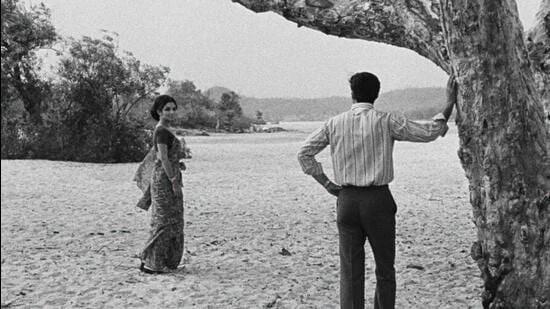Toronto: One of the Toronto International Film Festival’s (TIFF) favourite Indian directors will have another classic premiering on Sunday, as the digitally-restored version of Satyajit Ray’s Aranyer Din Ratri or Days and Nights in the Forest gets showcased at North America’s largest movie event.
The film was originally made in 1970 and remains a cult classic but the high-quality restoration process began in 2019 at the urging of director Wes Anderson who described it as a “special/particular gem”.
Working with copyright holder Purnima Dutta and Satyajit Ray’s son, director Sandip Ray, the restoration moved forward in 2020. Work was severely hampered by the Covid-9 pandemic, but the Film Heritage Foundation’s Shivendra Singh Dungarpur was able to travel from Mumbai to Kolkata in the midst of the lockdown, to check the negatives and organise their transport to L’Immagine Ritrovata in Bologna for scanning and 4K digital restoration. It was undertaken under the aegis of the US-based The Film Foundation (TFF).
 TIFF wanted to platform this film because Ray is a “perennial favourite” of its “very dedicated cinephile audience”, the festival’s director of programming Robyn Citizen said.
TIFF wanted to platform this film because Ray is a “perennial favourite” of its “very dedicated cinephile audience”, the festival’s director of programming Robyn Citizen said.
She pointed out this film is not one of Ray’s best known works, but there was “something very singular” about it with “surreal, dreamlike elements” while it’s also “very light and enjoyable.”
The film’s cast is led by Sharmila Tagore and Soumitra Chatterjee and it captures “four young men from Calcutta head to the Palamau forest in Eastern Bihar for some rest and relaxation, only to have their ideals and assumptions challenged”, according to TIFF’s description.
The restored version continues on the festival circuit after having been showcased at Cannes in May.
Ray’s films have often been welcomed by TIFF. In 2022, a digital restoration of Agantuk, originally released in 1991, played at the festival in September. Agantuk was Ray’s final feature and came to TIFF courtesy the National Film Development Corporation of India and the National Film Archive of India. That screening came soon after a showcase, “Satyajit Ray: His Contemporaries and Legacy”, featured in August, consisting of ten films, including four by Ray.
